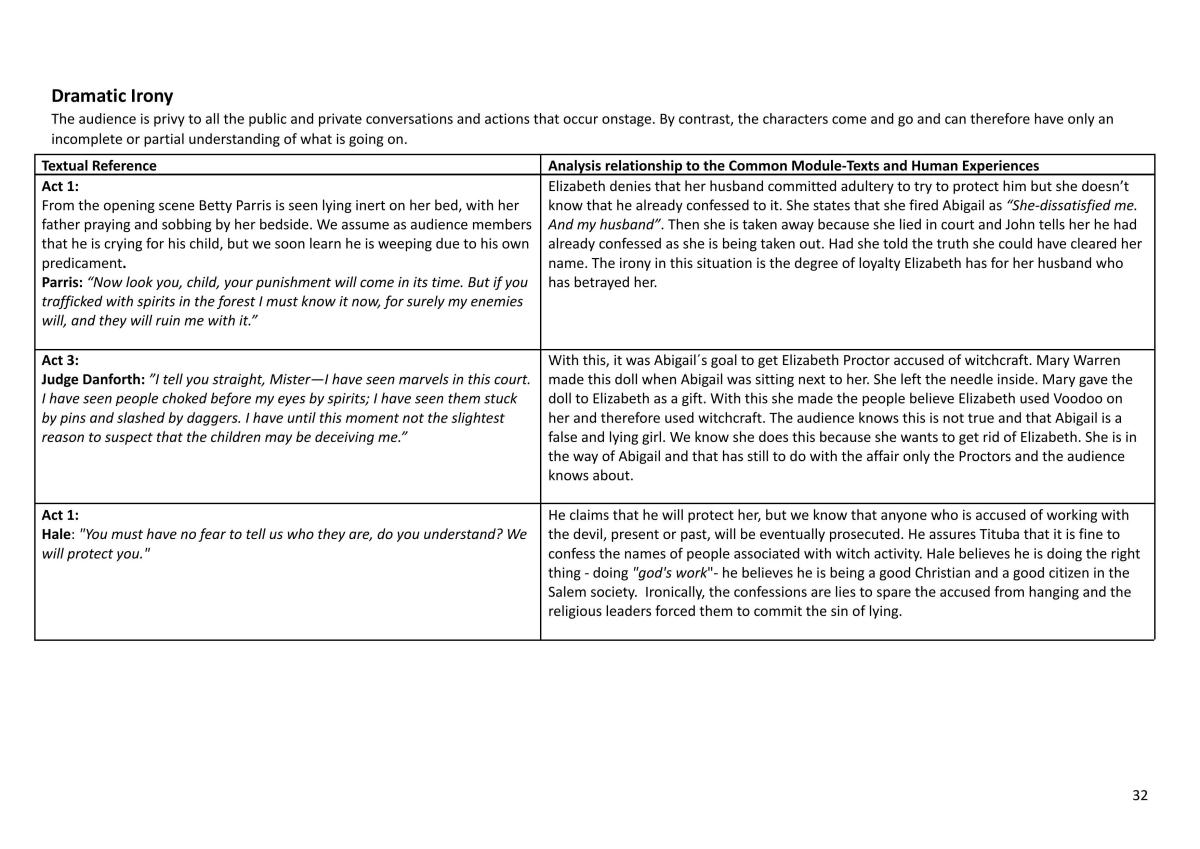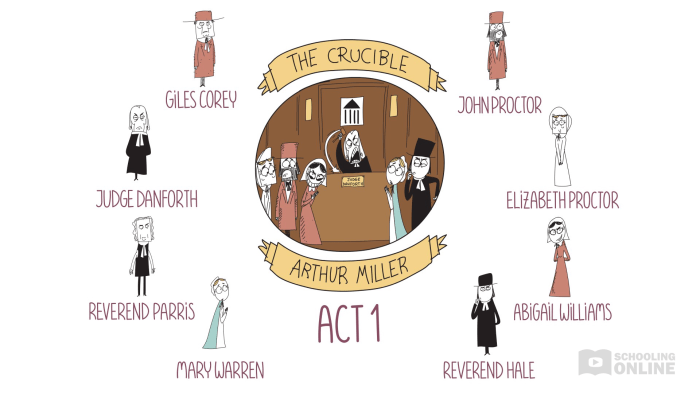The crucible act 1 puritan problems – The Crucible Act 1: Puritan Problems delves into the complexities of the Puritan society in Salem, Massachusetts, and the challenges they faced in the 17th century. This analysis explores the interplay of theocracy, social hierarchy, fear, witchcraft, and gender dynamics, providing a comprehensive understanding of the historical and cultural context of the play.
Puritan beliefs and the concept of theocracy shaped the community’s values and laws, creating a rigid social hierarchy that fostered intolerance and discrimination. The climate of fear and suspicion permeated Salem, fueled by rumors and gossip, contributing to the outbreak of the infamous witch hunt.
Theocracy and Puritan Beliefs

Theocracy, a form of government where religious leaders hold political power, played a pivotal role in shaping Salem’s society. Puritanism, a strict Protestant sect, permeated every aspect of life, dictating the community’s values, laws, and daily practices.
Puritan Beliefs
Puritans believed in predestination, the idea that God had chosen a select few for salvation. This belief fostered a sense of exclusivity and intolerance towards those who deviated from their strict religious doctrines.
Religious Practices, The crucible act 1 puritan problems
Puritan religious practices emphasized self-denial, humility, and a rigorous adherence to Scripture. Church attendance was mandatory, and sermons often lasted for hours. Individuals were expected to lead exemplary lives, free from frivolous pursuits and sinful behavior.
FAQ Explained: The Crucible Act 1 Puritan Problems
What is the significance of theocracy in Salem?
Theocracy, where religious leaders hold political power, played a crucial role in Salem. It shaped the community’s laws, values, and daily life, contributing to the strict enforcement of Puritan beliefs.
How did the Puritan view of outsiders contribute to intolerance?
Puritans believed they were God’s chosen people, leading them to view outsiders with suspicion and hostility. This intolerance created a climate of fear and discrimination against those who did not conform to Puritan beliefs.
What factors contributed to the climate of fear and suspicion in Salem?
Rumors, gossip, and a heightened sense of religious fervor created a climate of fear and suspicion. Accusations of witchcraft and supernatural forces further fueled the paranoia and mistrust within the community.

